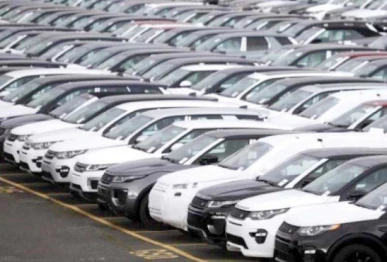Oct 19(ABC): In startling revelations, the government has imposed up to 500% more taxes on imported cars to protect the local car assemblers from foreign competition. In return, however, the assemblers have passed on the agony by overcharging consumers and delaying deliveries up to one year.
The revelations were made during a meeting of the Public Accounts Committee (PAC) – the Parliamentary watchdog – compelling the committee to recommend reviewing the undue protection helping the said companies in fleecing consumers.
The PAC recommended that the government withdraw the status of “manufacturers” instead calling (and treating) them as “assemblers” – a direction, if converted into law, will help lower protection levels enjoyed by the assemblers.
According to the PAC, protection is afforded via the imposition of custom duties, additional custom duties, sales tax, additional sales tax, federal excise duty and income tax at rates that are far higher than charged on the import of parts for locally assembled cars.
Local assemblers enjoy 241% to 500% protection, revealed Mujtaba Memon, the Special Secretary of Commerce.
“Before the recent imposition of additional duties, the protection level was in the range of 100% to 390%,” he said.
Headed by Noor Alam Khan, the PAC concluded that local car assemblers failed to honour their commitments, over-charged consumers by forcing them to pay a price higher than fixed at the time of booking and delayed deliveries for over a year.
The PAC directed the Ministry of Industries and Ministry of Commerce to review the protection and make a policy within one month addressing the issues being faced. It also instructed them to charge lower federal excise duty rates compared to the ones applicable on imported cars.
The Secretary Industries Imdadullah Bosal said, “Any change in the tariff policy at this stage may antagonise the principal manufacturers, but the government will try to frame a comprehensive policy within a month to end the exploitation of consumers.”
The PAC instructed the companies to deliver vehicles within a month in cases where full payment had been received. It also recommended reducing the overall delivery period to one month and if the vehicle is not provided, the company would pay late delivery charges.
Bosal said, “The company cannot take more than 20% advance and the delivery has to be made within two months. On a delay beyond two months, the company has to pay a fine equal to Karachi Interbank Offered Rate (Kibor) plus 3%. The companies have paid Rs1.9 billion in fines on this account between the period of Nov 2021 to April 2022.”
If the companies do not improve the delivery period, the PAC recommended the government lower taxes on 800cc to 1,300 cc imported cars to encourage competition. It further instructed that the government increase the age limit of imported cars from three to five years and directed the FBR to audit the accounts of the car assemblers.
“Imports allowed should equal to less than the production capacity of local car assemblers,” suggested Pakistan Tehreek-i-Insaf Senator Mohsin Aziz.
To which the secretary industries said that, “Against the total production capacity of 506,000 units a year, these companies cumulatively assembled 330,000 units in the previous fiscal year.”
“The Industries Ministry is working on a proposal to stop the companies from booking vehicles with delivery periods of over two to three months, and the vehicles should be bought from wholesale dealers instead of car assemblers,” said Bosal.
“A proposal to phase out the SRO-regime and replace it with the tariff structure from the next policy implementation period was also underway, he said. The government was giving protection to these assemblers under 2006 statutory regulatory orders.
According to PAC members, these companies have been running on half their capacity for the past many years, artificially creating demand and supply issues. In 2018, the assemblers produced only 273,279 vehicles, which in the previous fiscal year jumped to 322,754 units, Bosal said. However, a representative of a car assembler claimed that this year sales would remain in the range of 125,000 to 150,000 units due to restrictions on imports and higher prices.
“If the companies do not start behaving, the PAC will recommend opening imports,” said Khan.
The members also grilled car assemblers and the government ministries for collecting advances of billions of rupees for undelivered goods. By the end of the last fiscal year, Indus Motors had taken Rs112 billion in advances, Honda Atlas’s advances amounted to Rs23 billion and Pak Suzuki Motors Rs41.7 billion, according to the Secretary Industries.
A total Rs217 billion in advances stood against undelivered vehicles till June this year, according to the Secretary Industries.

